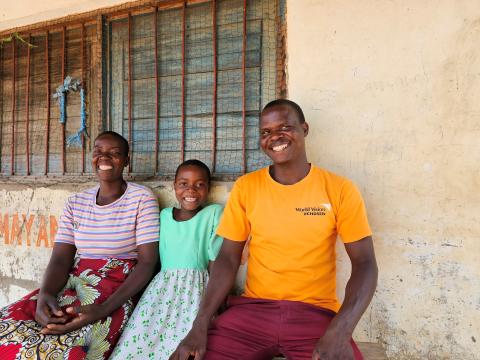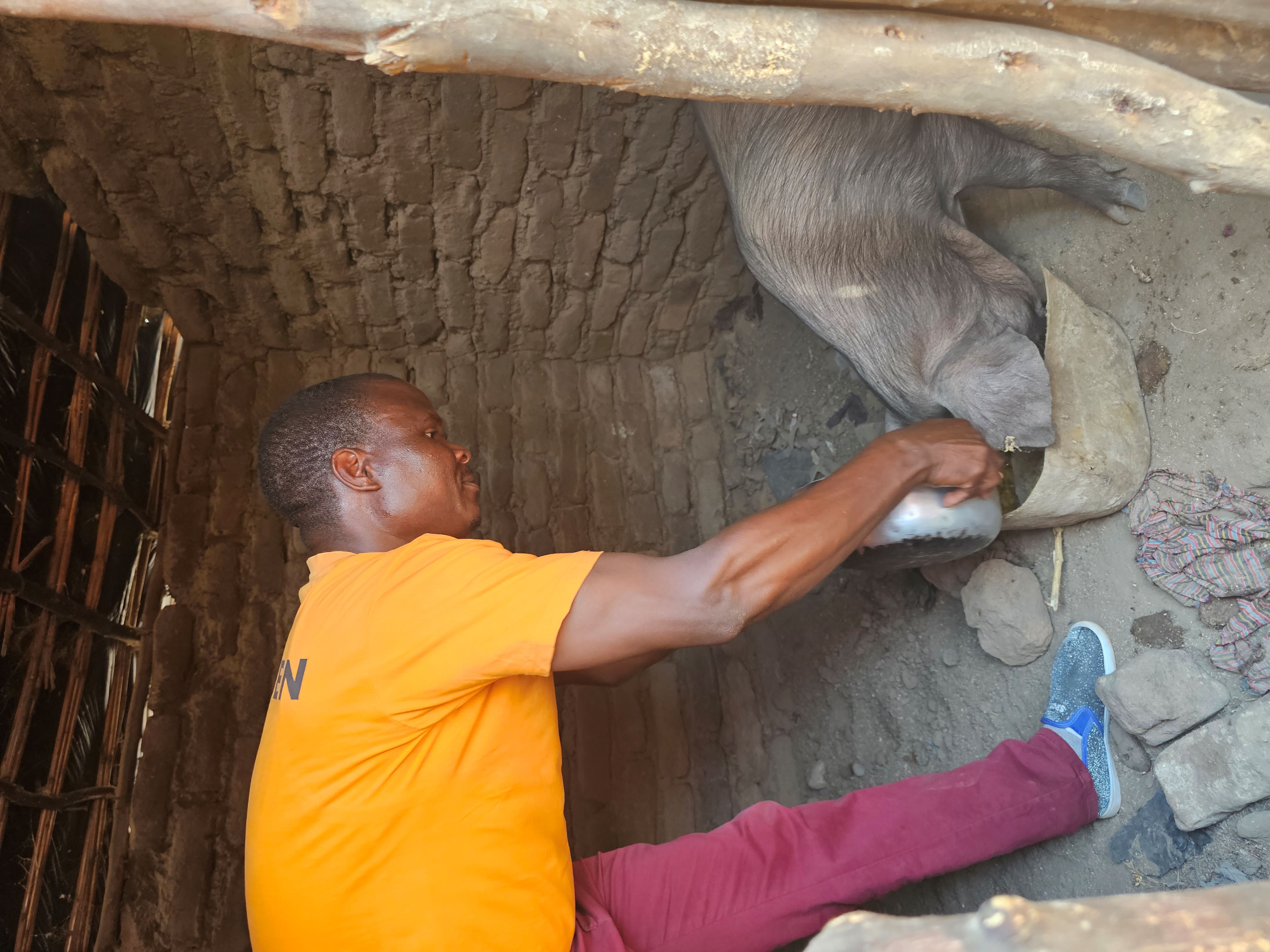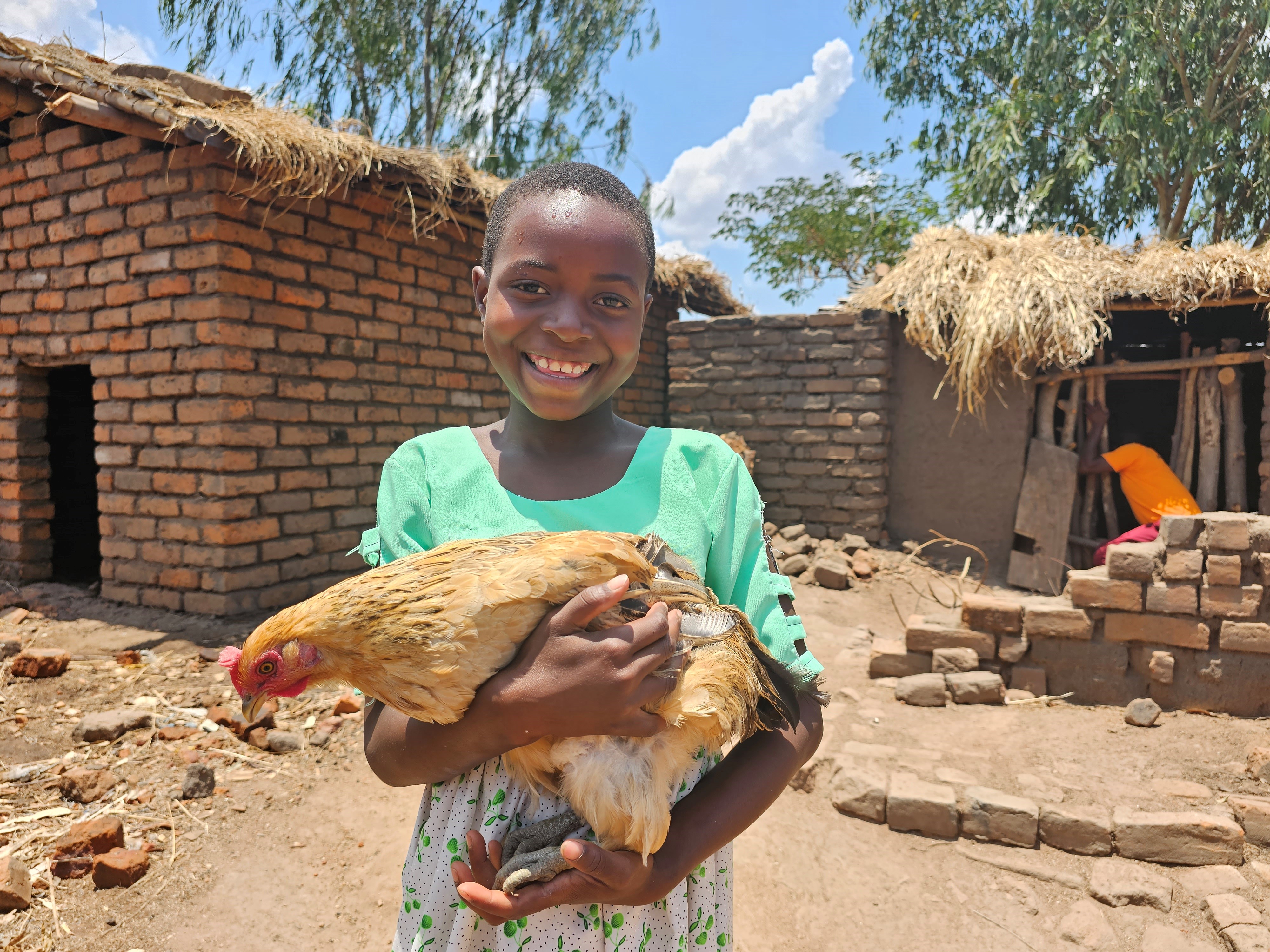Food For Assets Project Empowers Farmers to Navigate Tough Times

Frank and Mary Likaka is no strangers to the Food For Asset (FFA) project in Phalombe district. The couple has four girls, and very active within their community.
Mary, a cluster leader, gives a brief background of her work with World Vision and WFP. “Right before World Vision came to Jim Village in 2019, we used to have malnourished children within our community,” explains Mary. Mary says they didn’t know they could use the same resources they had to ensure their children were healthy and strong.
“In the past four years that World Vision and WFP have been here, we have learnt of good nutrition for mothers, expectant women and for the children, especially those under the age of five. We have also been taught on how to manage our homes and maintain hygiene in our surroundings. We have also learnt how to use natural resources with care,” explains Mary.
In this holistic project, WVI and WFP aim to teach households how to keep clean surroundings to minimize preventable infectious diseases such as malaria and diarrhea; how to prepare healthy meals with six food groups from staples ingredients, and how to manage their natural resources by planting more trees and using energy sources responsibly.
Frank boasts of the inclusivity of the trainings with the two organisations.
“They taught us to participate in the village savings groups to grow our money and develop a savings discipline. But most importantly, they taught us men to participate in the Village Savings Loans (VSL) groups, because previously it was only women that were taking part,” says Frank.

Franks goes on to narrate that the VSL groups have helped households to afford projects they otherwise would not have been able to afford. These include building better houses, buying livestock, farming at a larger scale, paying for school fees for children and providing basic necessities in their homes.
“My family is not the same anymore, we live a better lie now. The trainings we have participated in have helped change our thinking pattern and mindset towards wealth creating and economic independence. As I speak, we have goats, pigs and chickens. We also grow maize, soy beans and tobacco aside the backyard vegetables that we consume,” says Frank.

Frank and his family now have a vision and a plan for the next couple of years, and they believe that even if they face hardships like the cyclone Freddy that cost them some investments, they will be able to come out of it victorious.
“Climate is changing, and it has not been easy. And we know that things may never be the same again, however we have been taught on how to adapt to a changing climate. For instance this year we only harvested 15 bags of maize as opposed to the occasional 30 bags, and this was due to cyclone Freddy. We opted to keep that maize for home use,” explains Frank.
To ensure they have enough food to eat, Frank and his wife have decided to continue making investments beyond just farming, to ensure they have multiple sources of income. “We are going to start building another house soon, so that we can put it up for rent and have another income to supplement our needs here at home; in addition to livestock rearing and crop production.”
The Food for Asset project benefits 540 households people within Jim village, through paid voluntary work and various trainings on mindset change and economic empowerment.